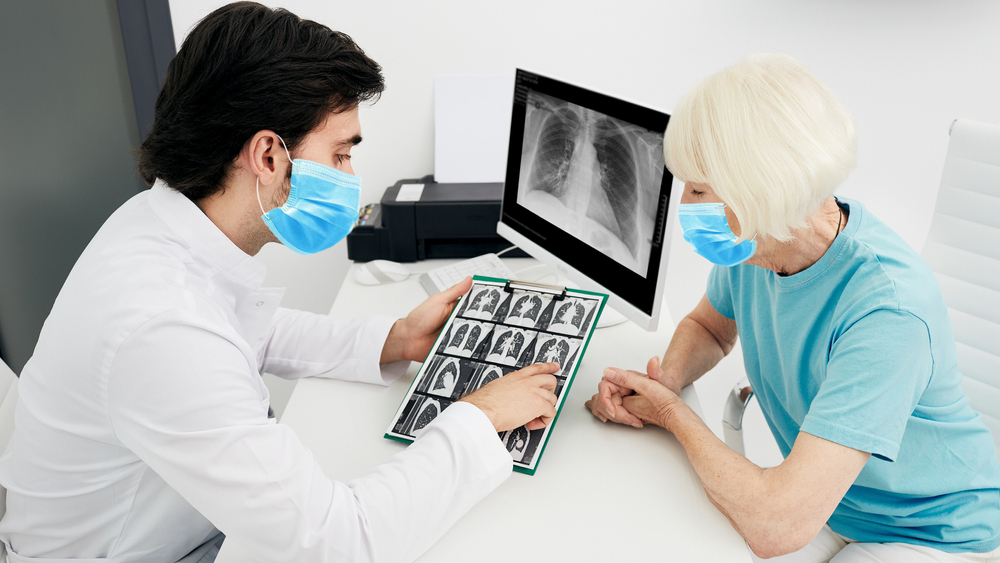#sivacaresforyou

Living with a lung disease such as Chronic Obstructive Pulmonary Disease (COPD) can be difficult, but there is hope. Individuals suffering from lung disorders might find hope in pulmonary rehabilitation programs, which provide comprehensive care and support. In this blog post, we'll look at the importance of pulmonary rehabilitation and the knowledge of the pulmonologists and chest specialists that run these programs. Understanding the significance of pulmonary rehabilitation and the role of a pulmonologist specialist can make a major difference in managing lung diseases, whether you're looking for help for yourself or a loved one.
Understanding Pulmonary Rehabilitation: Pulmonary rehabilitation is a comprehensive program that aims to improve the quality of life of those suffering from chronic lung disorders. COPD, asthma, lung fibrosis, and other disorders may be among them. Pulmonary rehabilitation aims to improve lung function, promote physical fitness, and enable patients to manage their symptoms more effectively.
Pulmonologists are medical professionals who specialize in the diagnosis and treatment of lung diseases. When a patient is referred to a pulmonary rehabilitation program, a pulmonologist is crucial in establishing the severity of the problem and the best course of therapy.
Individualized Treatment Plans: The lung status of each patient is distinct. A pulmonologist customizes treatment strategies to meet unique needs, such as medication management, oxygen therapy, or lifestyle changes.
Collaboration with Chest Specialists: When dealing with complex lung problems, patients may require the knowledge of a chest specialist doctor. To provide complete care, pulmonologists collaborate closely with these specialists.
Monitoring development: Pulmonologists closely examine the development of pulmonary rehabilitation patients. They modify treatment regimens as appropriate to maximize program advantages and address any issues that may emerge.
Education and Support: Education is an important part of pulmonary rehabilitation. Patients are given crucial information about their illness by pulmonologists, who teach them how to manage symptoms, use inhalers or other devices, and make essential lifestyle adjustments.
Holistic Care: Pulmonary rehabilitation programs provide care that is holistic in nature. They include a group of healthcare experts such as pulmonologists, physiotherapists, nutritionists, and psychologists who collaborate to treat the physical and emotional aspects of living with a lung condition.
Exercise and Fitness: These programs include supervised exercise sessions to assist patients in increasing their strength and endurance. Exercise is suited to each individual's skills and is an important part of increasing lung function.
Dietitians in pulmonary rehabilitation programs provide nutritional assistance, assisting patients in making dietary choices that support their lung health.
Breathing skills: Patients learn skills to help them breathe better, control dyspnea, and get the most out of their oxygen.
Psychological Support: Coping with a chronic lung disease can be emotionally draining. Psychologists and counselors provide help and solutions for dealing with anxiety and sadness.
The Impact of Pulmonary Rehabilitation: Pulmonary rehabilitation has been found to dramatically improve the quality of life for those with lung diseases. It assists patients in regaining their independence, reducing hospitalizations, and improving their general well-being. If you or a loved one has a lung issue, look into the benefits of pulmonary rehabilitation and visit a pulmonologist or chest specialist doctor for specialized therapy.
Pulmonary rehabilitation programs, directed by skilled pulmonologists and chest specialists, offer a holistic approach to treating lung diseases such as COPD. These programs provide hope and support to people who want to live a productive life despite their diagnosis. Pulmonary rehabilitation improves the lives of people with chronic lung disorders by focusing on tailored care, education, exercise, and emotional well-being.
Copyright ©2023 Siva Hospital - All rights reserved | Designed & Developed by Ayatiworks